If you’ve been keeping an eye on Total Eco Croatia, you’ve seen that we’ve been on a mission to find out what exactly happens to waste in the Split area. If you haven’t read about our explorations yet, here’s the first article where we’ve interviewed the Manager or Recycling at Cistoca, and here’s our follow-up article where we’ve traced recycled waste to the sorting & collection agency “Jolly”.
As a brief reminder, we went in to address the general distrust towards the local waste management, and to find out whether recycling is really happening in Split & area. Turns out there are all the right facilities in place, but residents of Split & area haven’t been as diligent about their end of the deal.
So, this article will address all the practical details that will help you better understand recycling in Split & area, and do your due diligence.
What is recyclable?
You’d be surprised, but turns out you can recycle anything from photographic film to milk & juice cartons (eg. tetra pak), styrofoam (!), foam/packing peanuts, metals, tires, cans (from your canned vegetables & sauces), etc.
And no, not just in some utopian world where we all wish we were living – but right here in Split.
Why haven’t I seen the recycling bins for all those types of waste?
As we’ve addressed in the first article, Cistoca has hundreds of recycling bins waiting to be filled. The problem is that the streets of Split are already too narrow, and Cistoca is having a hard time getting permissions from Gradski Kotar to take up space for more recycling bins. In most neighborhoods, all they manage to provide are paper & plastic containers, in addition to regular waste bins.
Despite the above issue, there are areas where Cistoca was able to provide containers for more types of recyclables. Here’s a map from the cistoca website that shows the locations of glass, tetrapak (eg. milk & juice cartons), plastic and paper containers (in the order shown). The areas that show a bigger concentration of those bins are called “green islands”, and if there’s one near you, you’re welcome to drop off your recyclables there! The current collection schedule is as follows (although it can be changed throughout the year):
Mondays and Thursdays – plastic
Tuesdays, Fridays and Saturdays – paper
Wednesdays – tetrapack
There are also 2 recycling units that get moved around Split – one is currently located on Sibenska 56, and the other one in Strožanac – and there you can recycle anything from the more common types of waste to toners, batteries, and pharmaceutical waste.
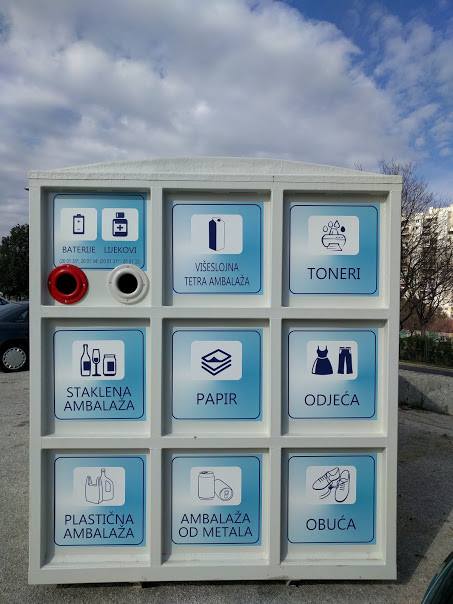
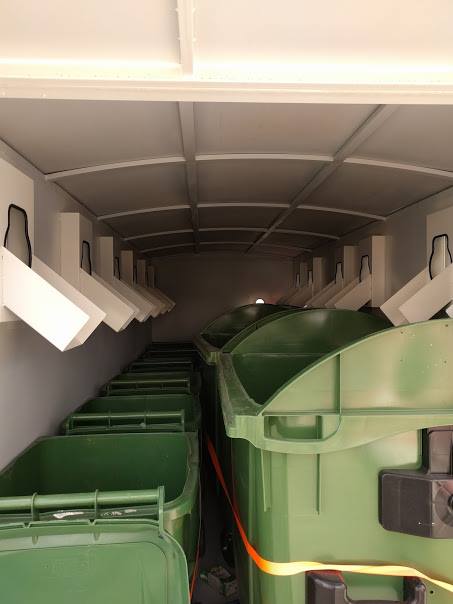
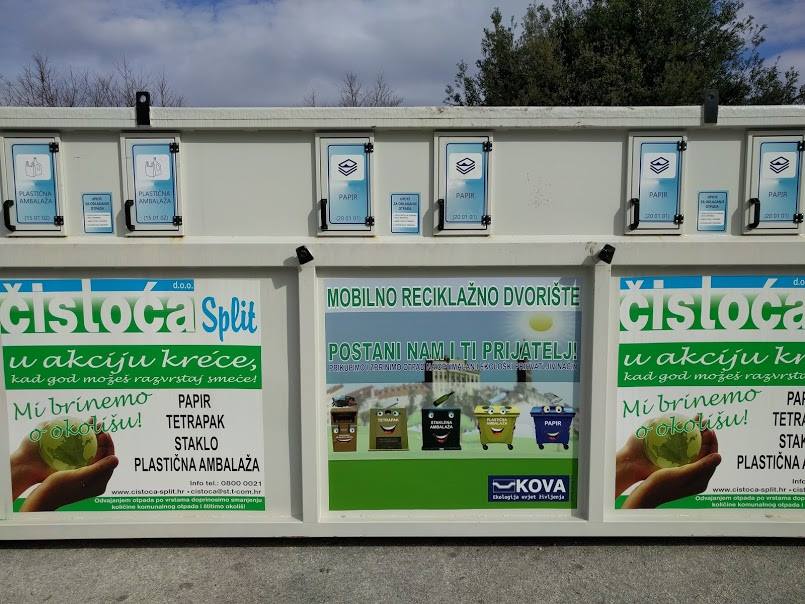
*Please note that those are mobile units and they are moved around Split to facilitate recycling in various neighborhoods. You’re always welcome to call Cistoca (0 800 0021) to confirm the units’ location if you don’t find them at the above addresses.
If you have even more specific recycling needs, you can take your waste to the recycling area adjacent to the Karepovac landfill. There are many more bins there for recycling anything from detergents & machine oils, to tires, pesticides, construction materials, metals, electronic waste, textiles, oils & fats, etc. Karepovac is open between 6.00 – 13.30.
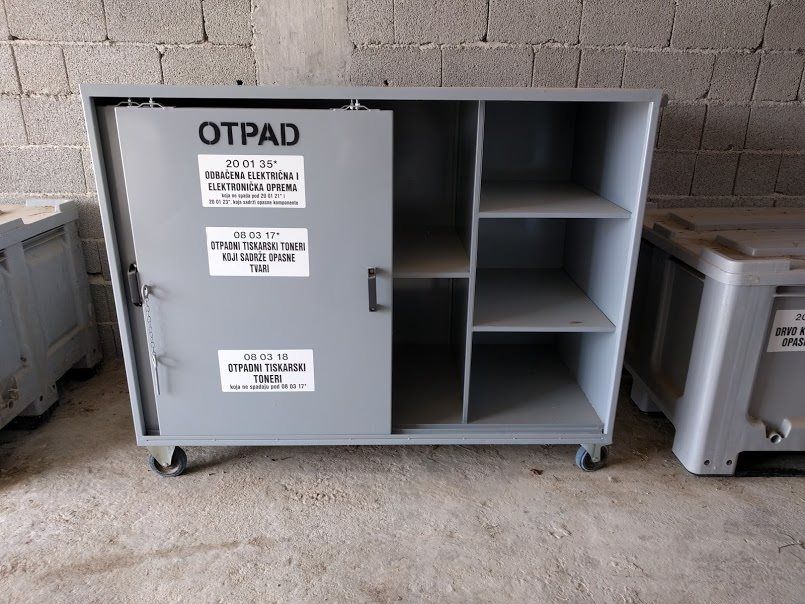
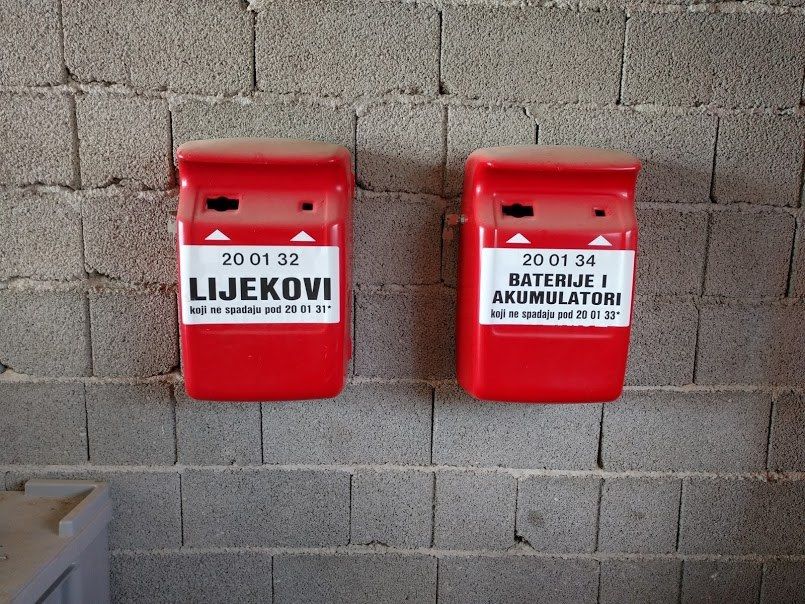
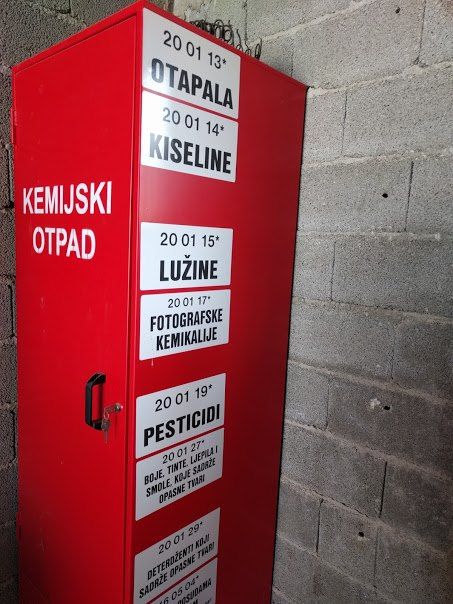
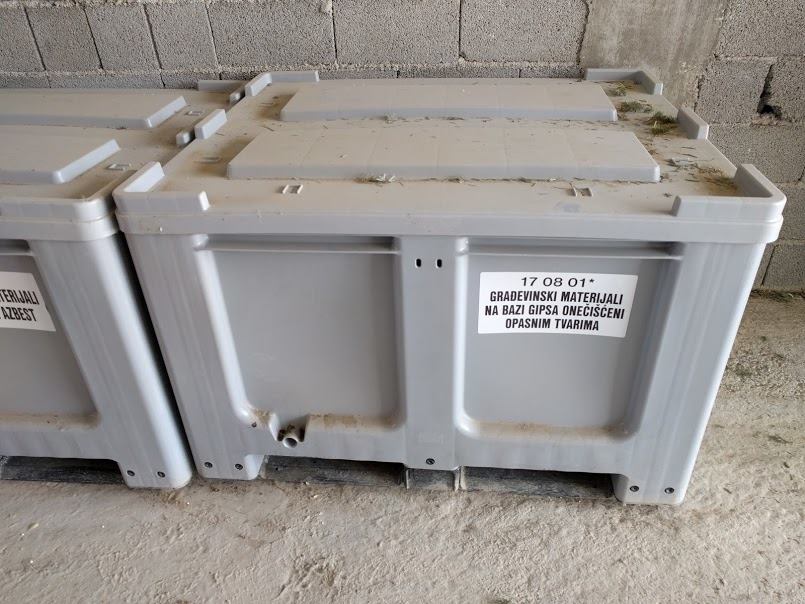
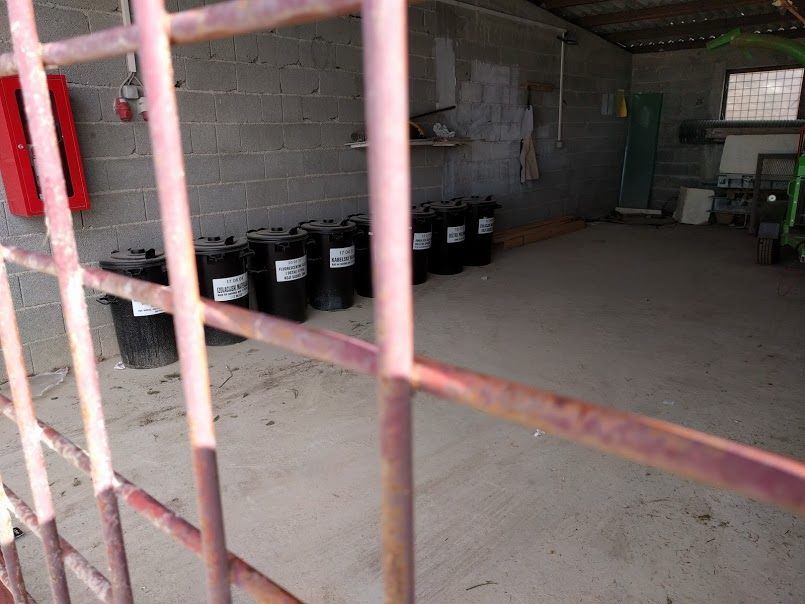
Please note that those are all intended for personal & residential use, not commercial. For more information about recycling & waste management for your business, please contact Cistoca or Cian.
What if I can’t get to any of the above, how can I recycle?
We understand that sometimes life gets in the way, and going out of your way to recycle might not make it into your daily to-do list. Luckily, there are still lots of options for you.
If you live in the Varos neighborhood, Cistoca provides free bags for your plastic & paper recyclables and collects them twice a month (on the 1st and 15th). If you haven’t received yours, call them at 0 800 0021.
You can also return empty batteries and broken electronics (including lightbulbs!!) to the stores where you bought them! Any store bigger than 50m2 must, by law collect & recycle those kinds of waste for you.
Your damaged tires can be returned to the nearest vulkanizer (tire shop).
You can return your pharmaceutical waste (eg. expired antibiotics, creams, etc.) to the nearest pharmacy, as they are also obligated to collect it.
If you don’t have recycling bins for other recyclable waste and there’s no way you can get to one, there’s still a way. Since most neighborhoods have at least paper & plastic bins, you can put all your other recyclables in the plastic bin.
Plastic gets hand-sorted into more than 16 types, so if the sorters come across milk cartons, textiles, etc. they’ll sort & separate them appropriately. Speaking of plastic, if you can wash it before you recycle – that’s excellent, but if you can’t (eg. meat packaging) it’s still better to recycle than to throw it into general waste.
You can also recycle ALL types of packing materials, including styrofoam and hard plastic (eg. from radios, pens, etc.).
But please, do NOT put your other recyclables into the paper bin. If the paper gets wet & dirty, it is no longer recyclable. If you’re not certain about something, you can always leave it by the side of the recycling bins, and when Cistoca personnel collect the waste, they’ll sort it appropriately.
——————————-
There’s much more to this conversation, and we’ll continue to develop it over time. For now, I’d like to leave you with just one thought: we often use the phrase “to throw away” – phrasing it that way gives us a bit of relief, and a sense of completion to that piece of waste’s life. But where do you think “away” is?
One of the most striking things that we’ve experienced while looking into waste management, is that ‘away’ doesn’t exist. “Away” is either a landfill, or a recycling bin with a hopeful final destination.
So please, before you throw something “away”, be aware of where it’s going – is there any way you can up-cycle this article to give it a new life? Is there any way you can compost it for fertilizer, or re-cycle it to be transformed into something else?
And most importantly, think about that before you buy something: is that plastic bag really worth it? Can you buy the veggies that come without plastic packaging?
For more information, you can contact Cistoca at 0 800 0021.
Thank you all SO much for joining the conversation, and we look forward to many, many more.







